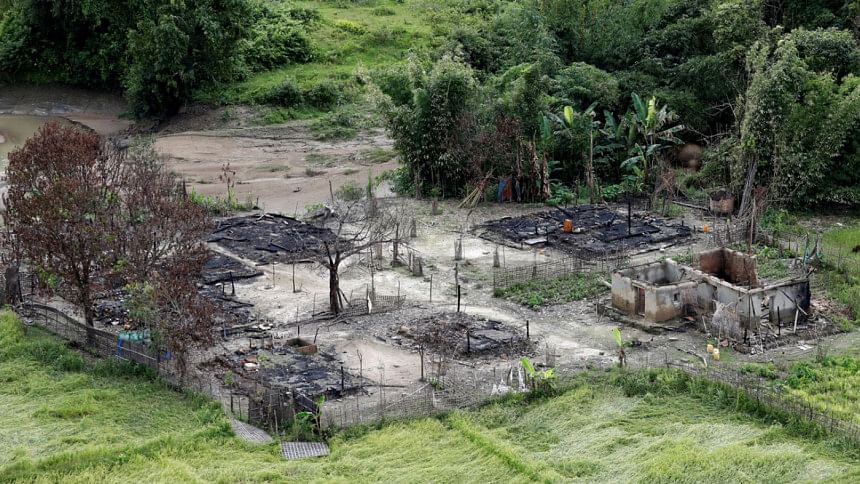Myanmar cancels UN visit to Rakhine

The United Nations said a visit to Myanmar's Rakhine state which was due to take place today (September 28) had been cancelled by the authorities, the BBC reported.
The visit was to have been the first time representatives of UN agencies would have been allowed to visit the area.
The UN has been demanding access since its humanitarian organisations were forced to pull out of Rakhine when Myanmar's military launched operations against Rohingya rebels in late August, causing hundreds of thousands of the minority Rohingya Muslims to flee into neighbouring Bangladesh.
The BBC report on its website cited a UN spokesman in Yangon as saying the visit had been cancelled, but no reason was provided for the decision.
UN spokesman Stephane Dujarric had said earlier a trip organised by the government possibly for Thursday had been scheduled, AFP reported.
"We hope above all that it is a first step towards much freer and wider access to the area," he said at his daily news briefing.
He had said the chiefs of UN agencies would take part in the trip.
The UN has drawn up a contingency plan to feed up to 700,000 Rohingya refugees from Myanmar, and warned that those who fled will not be returning home soon.
"All the UN agencies together have now set a plan for a new influx of 700,000. We can cover if the new influx reaches 700,000," the World Food Program's deputy chief in Bangladesh, Dipayan Bhattacharyya, said on Wednesday.
UN refugee agency chief Filippo Grandi said that for those who have fled to Bangladesh, "return will take time, if it happens, if the violence stops."
Myanmar's military, under fire for imposing a news blackout on the campaign around the city of Maungdaw in the country's west, on Wednesday organised a press tour in the Hindu village of Ye Baw Kyaw.
Mass graves containing 45 Hindu villagers were discovered in the area earlier this week, and the military has accused Rohingya militants of carrying out the massacre.
The Arakan Rohingya Salvation Army (ARSA) "categorically" denied that its members "perpetrated murder, sexual violence, or forcible recruitment" in the area.
The decomposing skeletal bodies remained laid out in rows on a grassy field outside Ye Baw Kyaw as distraught relatives wailed, according to AFP journalists at the scene.
Hindus who fled the area have told AFP that masked men stormed into their community and hacked victims to death with machetes before dumping them into freshly-dug pits.
Myanmar's army has tried to control the narrative over the crisis, restricting press access to the conflict zone while it posts regular updates that blame Rohingya militants for the bloodshed.
Government and military reports have also sought to highlight the suffering of other ethnic groups, such as Rakhine Buddhists and Hindus, swept up in the communal unrest.
The latest violence has intensified long-running religious hatreds and been complicated by a swirl of rival narratives from different ethnic groups.
The UN Security Council is also set to meet on the situation in Myanmar on Thursday.
On September 13, the council demanded "immediate steps" to end the Myanmar violence and expressed concern about "excessive force" being used by the military.
The council also called on the Myanmar government to abide by its commitment to facilitate humanitarian aid in Rakhine, but until now that request has not been met.
Secretary-General Antonio Guterres will address the UN Security Council during its open door session. As a former UN high commissioner on refugees, Guterres knows Rakhine and the context of the current crisis intimately.
With accusations of "ethnic cleansing" being leveled at the UN General Assembly, Myanmar leader Aung San Suu Kyi said last week she was "ready" to organize the return of the Rohingyas.
The Rohingyas, the world's largest stateless group, are treated as foreigners in Myanmar, whose population is 90 percent Buddhist.
Copyright: The Straits Times/Asia News Network

 For all latest news, follow The Daily Star's Google News channel.
For all latest news, follow The Daily Star's Google News channel. 







Comments